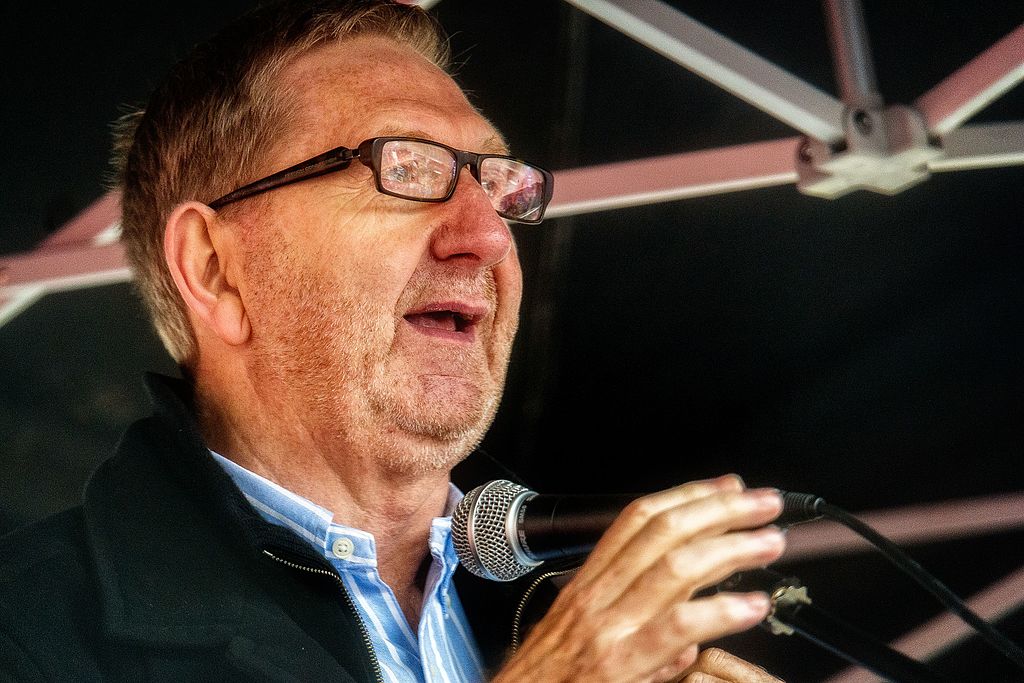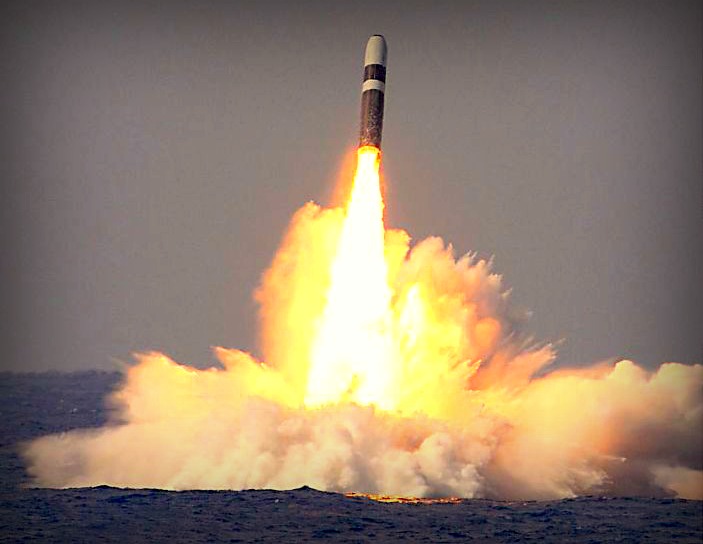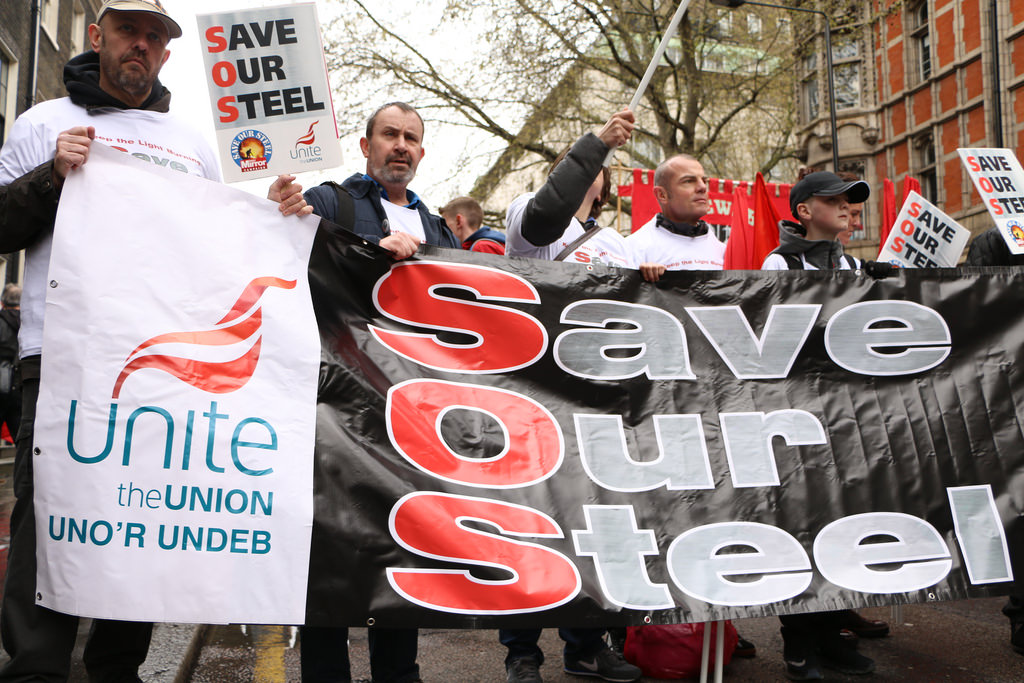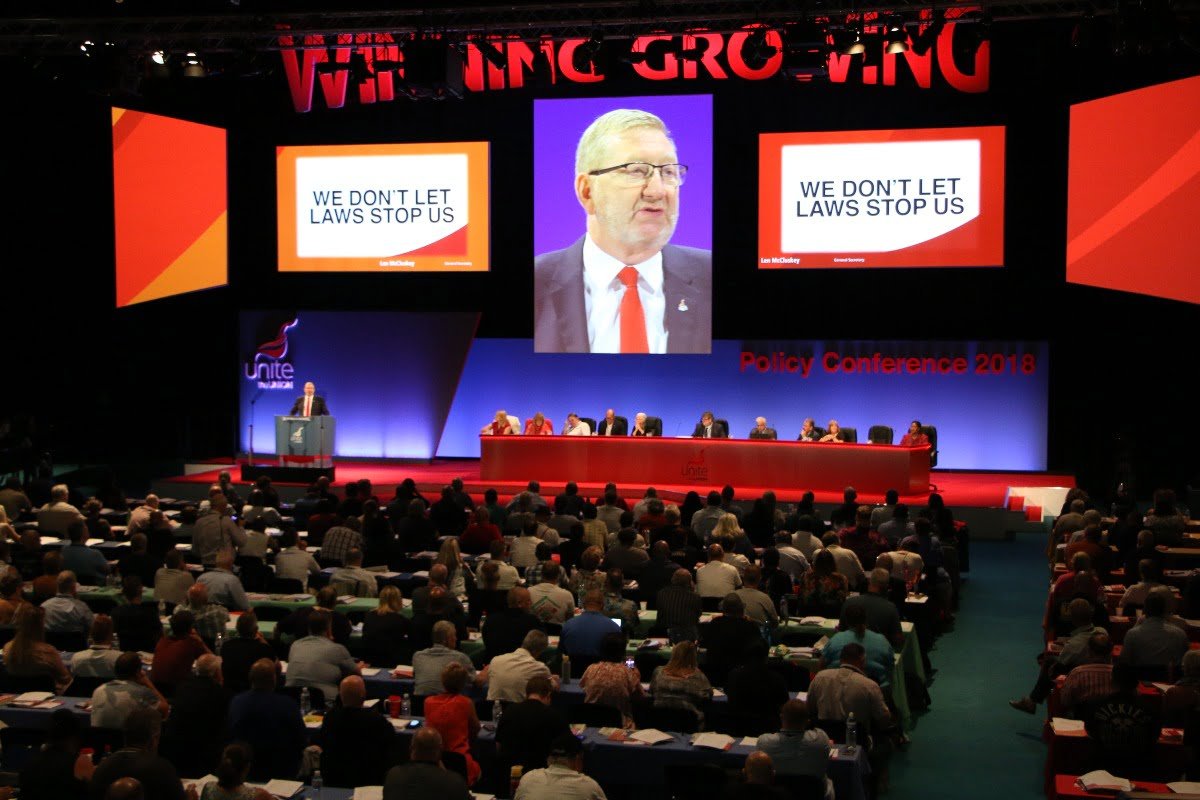The debates at Unite conference this week demonstrate the seemingly insoluble problems facing the working class. From Brexit to automation: only a bold socialist alternative can offer a way forward.
As Britain’s largest trade union, representing around 1.4 million members across both the private and public sectors, the questions being raised within Unite the Union are a reflection of the burning issues facing the working class as a whole.
In general, Unite members are facing the same attacks on their pay, jobs, and conditions as workers across the board.
But more specifically, as the main union in many of the UK’s major industrial and manufacturing employers, Unite and its members are having to grapple with a number of burning issues that have arisen in this epoch of capitalist crisis: the ‘threat’ of automation; the impact of Trump and his trade war; globalisation and the race to the bottom; overproduction and the glut of steel on the world market; casualisation, blacklisting, and bogus self-employment; and – of course – the economic uncertainty arising from Brexit.
Tell the truth
 These questions – and much, much more – were debated over the past week by hundreds of delegates at the 2018 Unite policy conference in Brighton.
These questions – and much, much more – were debated over the past week by hundreds of delegates at the 2018 Unite policy conference in Brighton.
Amidst the cheers and self-congratulation at the top table, however, one could sense an unease on the conference floor that the issues raised during the week’s discussions were largely left unresolved.
Indeed, on all the most important questions, the strategy of the union leadership was clear: fudge the issue; try to appease all sides; and kick the can down the road in terms of addressing the pressing tasks facing Unite members and the wider labour movement.
But this tactic of prevarication and compromise is one of diminishing returns. Attempting to skirt around the issue and sweep concerns under the carpet will only pave the way for bigger crises and job losses in the future.
If we are to really tackle these important questions, we must do so head on – and this means telling the truth.
Having cake, and eating it
 Take, for example, the issue of ‘defence diversification’, which was a hot topic of debate at this year’s conference.
Take, for example, the issue of ‘defence diversification’, which was a hot topic of debate at this year’s conference.
In effect, the issue boils down to this: on the one hand, the wider working class has no interest in Britain retaining the £100 billion waste of metal that is Trident, nor in manufacturing arms that are destined for Yemen and other victims of imperialism’s adventures; on the other hand, Unite represents workers in the ‘defence’ industry, including those employed in maintaining the country’s nuclear arsenal.
How then to reconcile the necessary goal of disarmament with the needs of workers employed in this socially unnecessary sector?
The Unite leadership’s approach was – as with all major questions at the conference – to try and both have their cake and eat it.
To this end, the Executive Statement on ‘defence diversification’ both recognised the importance of nuclear disarmament and moving away from the military-industrial complex, whilst also saying that now is not quite the time for the union to commit to these worthy aims.
Similar contradictory rhetoric was on display in relation to the question of trade. Some motions, for example, called for Unite to stand up for free trade in the face of Trumpian tariffs, so that British exporters would not be hit. Other motions, only pages later, called for British steel (and other industries) to be protected from Chinese imports and the effects of worldwide overproduction.
In short: the union was expected to be simultaneously in favour of free trade and protectionism – depending on which would benefit British industry in each specific case.
The elephant in the room
 The same cherry picking was seen in the other big debate at conference: that on the topic of Brexit. On one side: a call for a “workers’ Brexit”. On the other: a demand for a vote on any final deal. The result: an Executive Statement that criticises the EU, whilst calling for a customs union and continued access to the single market – and which leaves the door open to a final vote.
The same cherry picking was seen in the other big debate at conference: that on the topic of Brexit. On one side: a call for a “workers’ Brexit”. On the other: a demand for a vote on any final deal. The result: an Executive Statement that criticises the EU, whilst calling for a customs union and continued access to the single market – and which leaves the door open to a final vote.
Indeed, many of the key motions being discussed amounted to little more than a wishlist, with no attempt to explain how these concessions could – or would – be wrestled from the bosses.
For example, in the debate on how the union movement should respond to the impact of modern technology on jobs, the correct demand was made: for a shortening of the working week, without loss of pay, and with lifelong training and education provided to workers to help them transition into new, more productive sectors.
But nobody mentioned the elephant in the room: the capitalists do not produce things, deploy machinery, and employ workers out of benevolence, but in order to make a profit.
As long as industry is left in private hands, this will always be the case. The gains of automation will accrue to the owners, whilst the losses will accrue to the working class. Simply put: new technology will not be used to lower the hours of the working week, but to squeeze workers ever harder.
Take back control
 In this respect, there was one motion at the conference that had the potential to address all of the key issues being debated throughout the week: the demand to restore Clause IV – Labour’s original commitment to provide workers with “the full fruits of their labour” through common ownership.
In this respect, there was one motion at the conference that had the potential to address all of the key issues being debated throughout the week: the demand to restore Clause IV – Labour’s original commitment to provide workers with “the full fruits of their labour” through common ownership.
Only through nationalising the ‘commanding heights of the economy’ – the banks and major monopolies – under workers’ control can we solve the various seemingly insoluble problems facing us under this senile capitalist system.
Only a socialist plan of production, operating on the basis of society’s needs, not the profits of the 1%, can cut through the Gordian Knot posed by Brexit, automation, and world trade.
Unfortunately, as reported previously, this demand to restore Clause IV was opposed by the Unite leadership at conference. But whilst you can defeat a motion, you cannot defeat an idea whose time has come.
Enormous events are on the horizon that will act like a hurricane on society and working class communities. There is no way to avoid this harsh reality within the confines of capitalism.
We say: stop rearranging the deckchairs on the Titanic. We need to “take back control”. We need nationalisation. We need socialism.






